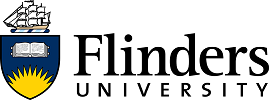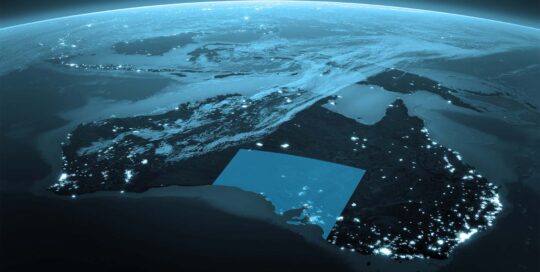Organisation Overview
Flinders University is a modern research intensive university with key space applicable capabilities in a wide variety of areas including materials science, nanotechnology, robotics, mechatronics, earth observation, science education and policy, geospatial sciences, space heritage, and medicine.
Flinders is ranked in the top 2% of universities worldwide.
Flinders is an institutional member of the International Astronautical Federation and the Space Industry Association of Australia.
Expertise and Capabilities
Flinders Centre for Nanoscale Science and Technology researches and produces innovative materials and coatings with relevance to the space industry. Our nanotechnology research group can manufacture and test coatings and new materials in-house. The Centre scored a top ranking of 5 in the most recent Excellence in Research for Australia (ERA) assessment.
A key technology in future off-Earth mining is the use of biological agents for mineral extraction. A Flinders research group is studying the interaction between bacteria and mineral surfaces using advanced synchrotron nanospectroscopic techniques.
The University’s Physics Group has a long tradition of innovative space physics research. Flinders also conducts innovative research in haptics and telecommunications that are spacecapable.
Flinders’ Centre for Science Education in the Twenty First Century supports science, technology, engineering and mathematics education in secondary schools through student and teacher-focused projects. The Centre runs a degree program in Science Communication and Policy.
Airborne Research Australia (ARA) is Australia’s only national research facility operating aircraft for environmental and atmospheric research. ARA operates a number of aircraft from Parafield Airport. The core activity of ARA is the use of airborne platforms (special mission aircraft) for a wide range applications and projects, mainly in the environmental research and development area. These projects are based on collaborations with colleagues and institutions within Australia and internationally.
Unique Selling Points
Flinders University conducts cutting-edge research in the emerging field of space archaeology, in which Dr Alice Gorman is a globally recognised leader. Dr Gorman has expertise in space heritage, social and ethical aspects of orbital debris mitigation and off-Earth mining, and space environmental management frameworks. She contributes to Australian space policy directions through the Space Industry Association of Australia.
Contact: Dr Alice Gorman
Alice.Gorman@flinders.edu.au
Flinders University’s research infrastructure in science and engineering is outstanding and the University’s Tonsley campus provides space for research-industry collaboration in South Australia. Facilities at Tonsley include a Faraday cage, underwater vehicle development and testing capacity and a large hexapod robot for biomechanical testing, in addition to a wide array of manufacturing and prototyping facilities.
Flinders has a dedicated Defence Partnerships Director, tasked with fostering industrial applications and research collaboration with defence science and technology.
Contact: Mr Tony Kyriacou
tony.kyriacou@flinders.edu.au






